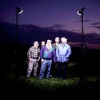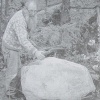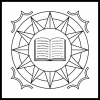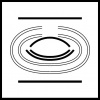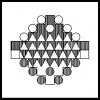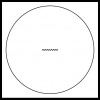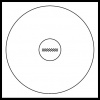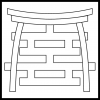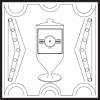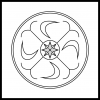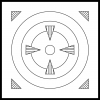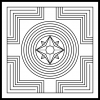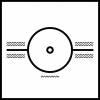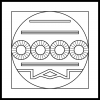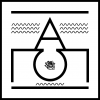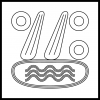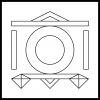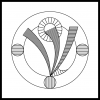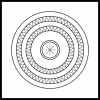Photo Gallery
Please see Special:NewFiles or Special:ListFiles to view all uploaded files. There is also an Art Gallery.
Introduction
<img border="0" src="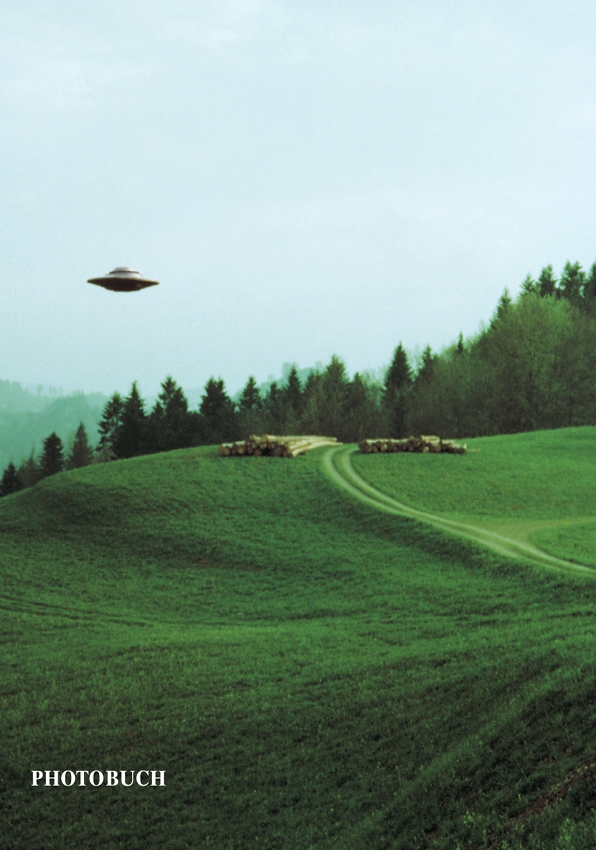 " alt="Photobuch" width="120" height="174" style="float:right">
<img border="0" src="
" alt="Photobuch" width="120" height="174" style="float:right">
<img border="0" src=" " alt="Photo-Inventarium" width="120" height="174" style="float:right">
" alt="Photo-Inventarium" width="120" height="174" style="float:right">
- Photo-Inventarium / Photo-Inventarium
Photographs by Billy Eduard Albert Meier and a selection of his witnesses from 17th May 1964 to 5th February 2004. With an explanation as to why BEAM is the proclaimer of the modern times, contact person to the Plejaren Federation, why he was supposed to take the best photos of the out of this world beamships and the reason they come to Earth.
Source Sample - Photobuch / Photobook
Linen cover with silver embossing, 4 coloured print, thread-bound, 122 pages, 95 photos (including 29 large format colour photos), size: 230mm x 297mm.
Source Sample
The extraterrestrial human beings that Billy Meier is in contact with have encouraged and helped him to take over a thousand photographs and film recordings of their many different types of spaceships and beamships. The more famous photos were taken in the 70’s and early 80’s, one of which ended up being used for the original X-Files "I Want To Believe" TV Poster in the 90's, allowed in order to demonstrate how fiction is a more popular interest than non-fiction. The lesser known non-famous images by BEAM and those by other photographers at higher resolutions span a time-frame, when the images from India are considered, from 17th May 1964 to 5th February 2004 and others even to the present day, when vessels from the wider Plejaren Federation are considered (however it all began much earlier in 1937). The collection includes other interesting things including archaeological discoveries. Its all already heavily steeped in heritage despite first being documented properly in just the second half of the 20th century.
Gallery
- Gallery of selected images
-
Eight unknown bullet shaped illuminating UFOs over New Dehli, India, 19 May 1964.
-
Three illuminating bullet shaped UFOs against a dark sky due to sandstorm. Two of the objects just visible to the right edge of the picture. 24 May 1964.
-
Eight unknown bullet shaped illuminating UFOs over New Dehli Railway Station, India. A very large group of people witnessed this event on 16 June 1964.
-
Asket's beamship of the DAL-Universe visible in the sky above the Ashoka Ashram. Mehrauli-New Dehli (India) Ashoka Ashram Gurgoan-Road, 3 July 1964.
-
Asket's beamship of the DAL-Universe visible in the sky above the Ashoka Ashram. Mehrauli-New Dehli (India) Ashoka Ashram Gurgoan-Road, 3 July 1964.
-
Close-up of Asket's ship, 3 July 1964.
-
Asket's beamship of the DAL-Universe visible in the sky above the Ashoka Ashram. Mehrauli-New Dehli (India) Ashoka Ashram Gurgoan-Road, 3 July 1964. (Video still from the feature-length documentary "The Silent Revolution of Truth")
-
Asket's ship in Mehrauli, India, 3 July 1964.
-
Close-up of Asket's ship, 3 July 1964.
-
Asket's ship in Mehrauli, India, 3 July 1964.
-
One of the photos of Semjase's ship flying away after Meier's first contact with her in the Frecht Nature Preserve, just outside Hinwil, right after Contact Report 1 took place on 28 January 1975.
-
One of the photos of Semjase's ship flying away after Meier's first contact with her in the Frecht Nature Preserve, just outside Hinwil, right after Contact Report 1 took place on 28 January 1975. Source: [1]
-
One of the photos of Semjase's ship flying away after Meier's first contact with her in the Frecht Nature Preserve, just outside Hinwil, right after Contact Report 1 took place on 28 January 1975. Source: [2]
-
The best photo from the first roll of film taken by Meier of Semjase's beamship right after Contact Report 1 took place on 28 January 1975.
-
Semjase's ship landed on 27 February 1975.
-
Semjase's ship landed on 27 February 1975.
-
Demonstration flight by Semjase's ship, 27 February 1975.
-
Close up of bottom of beamship, 27 February 1975.
-
Demonstration of four Plejaren ships—two explorer class beamships and two smaller reconnaisance ships at Jocobsberg-Allensberg, Switzerland, 27 February 1975. Source: [3]
-
Demonstration of four Plejaren ships—two explorer class beamships and two smaller reconnaisance ships at Jocobsberg-Allensberg, Switzerland, 27 February 1975. Source: [4]
-
Demonstration of four Plejaren ships—two explorer class beamships and two smaller reconnaisance ships at Jocobsberg-Allensberg, Switzerland, 27 February 1975.
-
The new Plejaren beamship flies overhead Fuchsbuel-Hofhalden, Switzerland on 27 February 1975.
-
Semjase's beamship flying high above Dorf Unter-Balm, photo taken through porthole of Quetzal's beamship. 28 February 1975.
-
Demonstration flight of a ship and reconnaissance probe, 3 March 1975. Also see an artist's sketch of this photo here
-
The larger beamship was returning to Erra to be retired from service, 3 March 1975.
-
Demonstration flight by Semjase's ship at Ober-Sadelegg on 8 March 1975.
-
Demonstration flight by Semjase's ship at Ober-Sadelegg on 8 March 1975.
-
Demonstration flight by Semjase's ship at Ober-Sadelegg on 8 March 1975.
-
Demonstration flight by Semjase's ship at Ober-Sadelegg on 8 March 1975.
-
Demonstration flight by Semjase's ship at Ober-Sadelegg on 8 March 1975.
-
Demonstration flight by Semjase's ship at Ober-Sadelegg on 8 March 1975.
-
Demonstration flight by Semjase's ship at Ober-Sadelegg on 8 March 1975.
-
Demonstration flight by Semjase's ship at Ober-Sadelegg on 8 March 1975.
-
Demonstration flight by Semjase's ship at Ober-Sadelegg on 8 March 1975.
-
Demonstration flight by Semjase's ship at Ober-Sadelegg on 8 March 1975.
-
Demonstration flight by Semjase's ship at Ober-Sadelegg on 8 March 1975.
-
Demonstration flight by Semjase's ship at Ober-Sadelegg on 8 March 1975.
-
Semjase's beamship at Winkelriet, Switzerland on 18 March 1975.
-
Semjase's beamship at Winkelriet, Switzerland on 18 March 1975.
-
Close-up of Semjase's ship at Winkelriet, 18 March 1975.
-
Semjase's beamship at Winkelriet, Switzerland on 18 March 1975.
-
One of the photos taken on 20 April 1975 at 10:00 am that survived Semjase's attempt to destroy the negatives thereof. Later that day, the 12th Contact with Semjase took place, at 3:11 pm (See Contact Report 12). (From Guido Moosbrugger's book "And still they fly!")
-
Photo of actual 8mm film of Semjase's ship "blinking out" in one frame. Berg-Rumlikon, Switzerland, 12 June 1975, 10:40 h.
-
Demonstration flight by Semjase in her ship at Berg-Rumlikon, 14 June 1975.
-
Demonstration flight by Semjase in her ship at Berg-Rumlikon, 14 June 1975.
-
Close-up of Semjase's ship at Berg-Rumlikon, 14 June 1975.
-
Demonstration flight by Semjase in her ship at Berg-Rumlikon, 14 June 1975.
-
Demonstration flight by Semjase in her ship at Berg-Rumlikon, 14 June 1975.
-
Demonstration flight by Semjase in her ship at Berg-Rumlikon, 14 June 1975.
-
Demonstration flight by Semjase in her ship at Berg-Rumlikon, 14 June 1975. (Source)
-
Demonstration flight by Semjase in her ship at Berg-Rumlikon, 14 June 1975.
-
Demonstration flight by Semjase in her ship at Berg-Rumlikon, 14 June 1975.
-
Two beamships side by side, photographed from inside a third beamship during the 27th Contact (see Contact Report 27) over Berg-Rumlikon. The surroundings of Rumlikon are clearly visible in the background. Berg-Rumlikon, 25 June 1975.
-
Two beamships side by side, photographed from inside a third beamship during the 27th Contact (see Contact Report 27) over Berg-Rumlikon, 25 June 1975. They were departing for what ended up being a 2 hour 34 minute trip to the planets Mars, Jupiter and Saturn, around the last one and back again to Earth, where they also passed through part of the asteroid belt.
-
Two beamships side by side, photographed from inside a third beamship during the 27th Contact (see Contact Report 27) over Berg-Rumlikon, 25 June 1975. (Video still from the feature-length documentary "The Silent Revolution of Truth" during a cross-fade between the two previous photos)
-
Semjase flying with her beamship around a wettertanne (weather pine) about 14 m. high (this tree was later eliminated by Semjase). In the background the Pfaffikersee is visible. 9 July 1975.
-
Semjase flying with her beamship around a wettertanne (weather pine) about 14 m. high (this tree was later eliminated by Semjase). In the background the Pfaffikersee is visible. 9 July 1975.
-
Semjase flying with her beamship around a wettertanne (weather pine) about 14 m. high (this tree was later eliminated by Semjase). In the background the Pfaffikersee is visible. 9 July 1975.
-
Semjase flying with her beamship around a wettertanne (weather pine) about 14 m. high (this tree was later eliminated by Semjase). In the background the Pfaffikersee is visible. 9 July 1975.
-
Semjase flying with her beamship around a wettertanne (weather pine) about 14 m. high (this tree was later eliminated by Semjase). In the background the Pfaffikersee is visible. 9 July 1975.
-
Semjase flying with her beamship around a wettertanne (weather pine) about 14 m. high (this tree was later eliminated by Semjase). In the background the Pfaffikersee is visible. 9 July 1975.
-
Semjase flying with her beamship around a wettertanne (weather pine) about 14 m. high (this tree was later eliminated by Semjase). In the background the Pfaffikersee is visible. 9 July 1975.
-
Semjase flying with her beamship around a wettertanne (weather pine) about 14 m. high (this tree was later eliminated by Semjase). In the background the Pfaffikersee is visible. 9 July 1975.
-
Four of Meier’s photos from 9 July 1975 (Nos. 65, 119, 57, 71) superimposed on the 2001 background panorama. Courtesy of J. Jansen. (Thanks to Professor Jim Deardorff [5])
-
This Photographs shows the two moons Prehistoric Earth had, both are now gone. The moon we have today is another one. This photo was taken by Billy during his Great Journey (see Contact Report 31).
-
Now you can see the truth with your own eyes. This photo was taken by Billy during his Great Journey (see Contact Report 31).
-
An insect-like plant. This photo was taken by Billy during his Great Journey (see Contact Report 31).
-
Edge of a beamship. This photo was taken by Billy during his Great Journey (see Contact Report 31).
-
Bachtelhörnli 15:25, 8th March 1976.
-
Bachtelhörnli 15:25, 8th March 1976.
-
Bachtelhörnli, 8th March 1976.
-
Bachtelhörnli, 8th March 1976.
-
Bachtelhörnli, 8th March 1976.
-
Bachtelhörnli, 8th March 1976. Source: [6]
-
Bachtelhörnli, 8th March 1976.
-
Bachtelhörnli, 8th March 1976.
-
Bachtelhörnli, 8th March 1976.
-
Bachtelhörnli, 8th March 1976.
-
Bachtelhörnli, 8th March 1976.
-
Bachtelhörnli, 8th March 1976.
-
One of the clearest photographs of the type 3 plejaren beamships. Bachtelhörnli, 8th March 1976.
-
Bachtelhörnli, 8th March 1976.
-
Demonstration flight of the latest type of ship by Semjase at Hasenböl on 29 March 1976.
-
Hasenböl, 29 March 1976.
-
Hasenböl, 29 March 1976. (High resolution)
-
Hasenböl, 29 March 1976. (High resolution)
-
Hasenböl, 29 March 1976. (High resolution)
-
Hasenböl, 29 March 1976. (High resolution)
-
Hasenböl, 29 March 1976. (High resolution)
-
Hasenböl, 29 March 1976.
-
Hasenböl, 29 March 1976.
-
Page 352 of the Preliminary Investigation Report, by Wendelle Stevens, 1982
-
Hasenböl, 29 March 1976. (High resolution)
-
Hasenböl, 29 March 1976.
-
Hasenböl, 29 March 1976.
-
Hasenböl, 29 March 1976. The tree branch can be seen in front of the rim of the ship, eliminating the possibility of the ship being a small model close to the camera.
-
The tree at Hasenböl in 1978.
-
Demonstration flight of the latest type of ship by Semjase at Hasenböl on 29 March 1976.
-
Demonstration flight of the latest type of ship by Semjase at Hasenböl on 29 March 1976.
-
Hasenböl, 29 March 1976. (High resolution)
-
Hasenböl, 29 March 1976. (High resolution) Also see an artist's sketch of this photo here
-
Hasenböl, 29 March 1976. (High resolution)
-
Hasenböl, 29 March 1976. (High resolution)
-
A cropped and enlarged image of one of the photos taken on 26 April 1976.
-
Mirage fighter jet of the Swiss Air Force, which made passes at Semjase's ship, 26 April 1976.
-
This picture shows the disc-shaped object surrounded by a yellow haze photographed by Guido Moosbrugger on 13 June, 1976 (source of image: the documentary Contact.)
-
This picture shows the "bar of intense light with a glittering rain of fire falling down," which Guido Moosbrugger photographed on 13 June 1976. (Source)
-
Photo by Hans Schutzbach on 13 June 1976. (Source)
-
More marks of Semjase's beamship. 28 June 1976.
-
Notice the spiral way the grass moves. 29 June 1976.
-
Billy and Konrad Schutzbach with landing tracks from Rala's and Menara's ships. Photo by Hans Schutzbach on 29 June 1976.
-
Konrad Schutzbach measuring landing tracks from Rala's and Menara's ships. Photo by Hans Schutzbach on 29 June 1976.
-
Konrad Schutzbach and Billy measuring landing tracks from Rala's and Menara's ships. Photo by Hans Schutzbach on 29 June 1976.
-
This is a photograph of the smaller ET's who was clearing the SSSC of negative thoughts and impulses. This is in the basement. 13 February 1977. (Source)
-
Demonstration of telekinetic powers by Billy on 30 April 1977. (click image for explanation)
-
Billy on the house premises with the laser pistol borrowed from Menara. Photo by Menara during the 78th Contact 9 (see Contact Report 78) on 6 July 1977. (Photo from Guido Moosbrugger's book "And still they fly!")
-
Billy on the house premises with the laser pistol borrowed from Menara during the 78th Contact 9 (see Contact Report 78). Photo by Menara on 6 July 1977.
-
This is Alena (a Lyrian) with Menara's laser pistol during the 78th Contact 9 (see Contact Report 78) on 6 July 1977. (Photo from Guido Moosbrugger's book "And still they fly!")
-
Another picture of Alena with Menara's laser pistol during the 78th Contact 9 (see Contact Report 78) on 6 July 1977.
-
The full photograph showing Alena with Menara's laser pistol during the 78th Contact 9 (see Contact Report 78) on 6 July 1977.
-
Alena with Menara's laser pistol, photographed by Billy during the 78th Contact 9 (see Contact Report 78) on 6 July 1977.
-
Alena with Menara's laser pistol, photographed by Billy during the 78th Contact 9 (see Contact Report 78) on 6 July 1977.
-
Alena with Menara's laser pistol, photographed by Billy during the 78th Contact 9 (see Contact Report 78) on 6 July 1977.
-
Alena with Menara's laser pistol, photographed by Billy during the 78th Contact 9 (see Contact Report 78) on 6 July 1977.
-
The damage done by the laser beam from the gun fired by Billy after it passed through the tree he shot at.
-
The damage done by the laser beam from the gun fired by Billy after it passed through the tree he shot at.
-
The damage done by the laser beam from the gun fired by Billy after it passed through the tree he shot at.
-
A close-up of the damage done by the laser beam from the gun fired by Billy after it passed through the tree he shot at.
-
Another tree Billy shot with the laser gun.
-
The tree that Billy shot with Alena's laser gun.
-
The section of the tree which, in 1977, Billy was permitted to shoot with Alena's laser gun, now preserved in a glass case at the Semjase Silver Star Center in Switzerland.
-
Demonstration of spoon bending through the use of spirit power (technically Materialkinesis) by Billy on 31 December 1977.
-
Demonstration of coin bending through the use of spirit power (technically Materialkinesis) by Billy on 31 December 1977.
-
Demonstration of coin bending through the use of spirit power (technically Materialkinesis) by Billy on 31 December 1977.
-
Demonstration of mental powers by Billy on 21 September 1978.
-
Demonstration of mental powers by Billy on 21 September 1978.
-
One of the ships of the energy dwarf race directly over the parking lot, 19 April 1979.
-
Pure energy spaceships of a dwarf human race from the area of Andromeda, located above the parking lot of the Semjase Silver Star Center (SSSC). Such ships have the ability to change their forms.
-
An energy vessel over the parking lot, 19 April 1979
-
Energy vessels over the parking lot, 23 June 1979.
-
Billy standing next to a landing track on 15 May 1980.
-
Quetzal's ship in front of the FIGU center on 22 October 1980. (From Guido Moosbrugger's book "And still they fly!")
-
Quetzal's ship in front of the FIGU center on 22 October 1980.
-
Quetzal's ship in front of the FIGU center on 22 October 1980.
-
Quetzal's ship in front of the FIGU center on 22 October 1980.
-
Quetzal's ship in front of the FIGU center on 22 October 1980.
-
See Contact Report 144 from 26 March 1981.
-
See Contact Report 144 from 26 March 1981.
-
See Contact Report 144 from 26 March 1981.
-
See Contact Report 144 from 26 March 1981.
-
See Contact Report 144 from 26 March 1981.
-
See Contact Report 144 from 26 March 1981.
-
Quetzal's ship called by Billy as "The Wedding Cake", hovering over his car on 26 March 1981.
-
The "wedding-cake" ship sitting on a second ship approx 40 meters from the ground. (See Analysis of the Wedding Cake UFO by Rhal Zahi and the second edition PDF)
-
Quetzal's ship on top of a tree.
-
Near Hinwil, 4 April 1981.
-
(See Analysis of the Wedding Cake UFO by Rhal Zahi and the second edition PDF)
-
Photo #850, enhanced, shows details of the tree in front of a WCUFO of 7 meters in diameter. (See Analysis of the Wedding Cake UFO by Rhal Zahi and the second edition PDF)
-
Quetzal accidentally knocked this tree over with his ship.
-
The top of the tree Quetzal accidentally knocked over with his ship. This part of the tree is visible in some of the other photographs.
-
See Contact Report 147 from 28 July 1981.
-
See Contact Report 147 from 28 July 1981.
-
See Contact Report 147 from 28 July 1981.
-
Bottom of a Beamship. 28 July 1981.
-
This is the bottom of Quetzal's ship. 28 July 1981.
-
28 July 1981.
-
28 July 1981.
-
28 July 1981.
-
Regarding photo #925: Quetzal let his beamship hover and rotate about 10 meters above the parking lot, while burning static energy which also had a rotating effect (just like the ship). Billy is standing in the fire ring and is holding a microphone above. See Contact Report 148 from 21 September 1981.
-
Photo #808. The best one taken hovering above Billy Meier´s yard. Lots of details, like coloured crystals, coloured lenses, etc.
-
Photo #808. Details of the coloured crystals and the lenses. A blue lens is inside of one sphere.
-
Photo #808. Reflection on one of the spheres. The Carriage House is visible. A little brown mark might be Billy Meier. At the right; sketches of the Building wall and Billy profile. Only a 3.5 meters UFO can produce this reflection.
-
Photo #873. WCUFO at night (left). On the right, enhanced image shows a terrain below the UFO with a pole. If the pole is 1 meter tall, this UFO is 7 meters in diameter.
-
Photo #841 zoomed and enhanced. Taken on April 3, 1981 at 13:20. Notice the shadows casted by the WCUFO on the tree branches that is fully visible here. The sun is behind the photographer (Meier). These shadows are the same as the ones shown in Photo #844.
-
Photo #844 enhanced. The bottom of the WCUFO displays a dark shadow at the left, reflecting the nearby tree. Notice the shadow casted by this WCUFO on the tree branches. This tree is a big one, not a little tree or a bonsai. WCUFO of 7m
-
Photo #844 enhanced and zoomed. The WCUFO of 7 meters is casting a shadow on the branches.
-
The picture above appears in Meier’s Photo Index as Photo # 1059. Click image for more info. Also, see Contact Report 117 .
-
Metal samples
-
Metal sample detail
-
Metal sample detail
-
Metal sample detail
-
Photo of Menara's ship by Edith Beldi on 22 April 1998.
-
Photo of Enjana's ship taken by Silvano Lehmann on 6 July 2000 (Click image for explanation). Source
-
Close-up of Enjana's ship in photo taken by Silvano Lehmann on 6 July 2000. Source
-
Sudor's beamship photographed at night on 5 June 2001 by a man who simply called himself "Ein Pirgler" and otherwise wished to remain anonymous.
-
Sudor's beamship photographed at night on 5 June 2001 by a man who simply called himself "Ein Pirgler" and otherwise wished to remain anonymous.
-
Sudor's beamship photographed at night on 5 June 2001 by a man who simply called himself "Ein Pirgler" and otherwise wished to remain anonymous.
-
Sudor's beamship photographed at night on 5 June 2001 by a man who simply called himself "Ein Pirgler" and otherwise wished to remain anonymous.
-
Sudor's beamship photographed at night on 5 June 2001 by a man who simply called himself "Ein Pirgler" and otherwise wished to remain anonymous.
-
Ptaah's beamship photographed during the afternoon of 20 August 2001 by a man who simply called himself "Ein Pirgler" and otherwise wished to remain anonymous.
-
Ptaah's beamship photographed during the afternoon of 20 August 2001 by a man who simply called himself "Ein Pirgler" and otherwise wished to remain anonymous.
-
The apple Billy gave to Guido Moosbrugger, which Billy received from Semjase during Contact Report 109. (Video still from the feature-length documentary "The Silent Revolution of Truth")
-
This is a photo of Billy's hand and next to it is the fingerprints of a 7 fingered ET.
-
A close-up of the hand print made unintentionally by an extraterrestrial human being during a contact with Billy, when he leaned on Billy's car for a moment. The natural acids of his skin caused the hand print to happen.
-
All of the Meier books published in the English language. Photo by Benjamin Stevens.
-
The FIGU Semjase Silver Star Center in 1981.
-
FIGU Semjase Siver Star Center.
-
The Semjase Silver Star Center's approach.
-
In front of the Semjase Silver Star Center.
-
Sculpture at the Semjase Silver Star Center.
-
Plaque at the entrance of the Semjase Silver Star Center.
-
The FIGU garden.
-
Field where Menara once landed her ship when she visited the Center.
-
Young Eduard Albert Meier at about age four in 1941.
-
Eduard Albert Meier at eight years of age in 1945.
-
Eduard Meier's passport photo.
-
Meier in Paris at age 25, 1962.
-
Meier with King Hussein during his travels in the Middle East.
-
Eduard in Mehrauli in the 60's.
-
Meier as "The Phantom" when he professionally detained serial killers and mass murderers in the Middle East.
-
Eduard (right) in Jordan in 1963. Marcus Isa Rashid (middle) was the co-discoverer of the Talmud Jmmanuel.
-
Close up of Marcus Isa Rashid and Meier.
-
Meier in Pakistan before he lost his left arm in a bus accident. He got the name 'Billy' around this time, because of his appearance here.
-
Article from The Statesman newspaper, 30th September 1964.
-
This is Billy's family in December of 1974, about a month before the official contacts with the Plejaren began.
-
A photograph of Billy in 1977, two years after the first contact with Semjase.
-
Billy on the phone in 1977. From "The UFO Encyclopedia, 2nd Edition - The Phenomenon from the Beginning" by Jerome Clark.
-
When asked how he took his UFO photos, Billy replied, "I just hold the camera like this, and I push this button... and it works."
-
Billy in 1980.
-
Billy and Shirley McLaine in 1981, when she visited the Center.
-
Billy in 1990, demonstrating the position he was in when he was struck by lightning. This represented another assassination attempt, this time from a group of extraterrestrials. See Contact Report 236 from 26 April 1990. (From Guido Moosbrugger's book "And still they fly!")
-
Billy at the Passive Group Members meeting at the SSSC in 1995.
-
Meier during an interview with Jaime Maussan of TELEVISIA, 21 February 1998. (Source)
-
Another asassination attempt on 8 June 1998.
-
'Billy' Eduard Albert Meier and Michael Hesemann on an on-site investigation around the year 2000. Source
-
Billy fly hunting at the Center in 2005.
-
Billy in 2007.
-
Billy in 2007. (Video still from the feature-length documentary "The Silent Revolution of Truth")
-
Billy during the filming of "The Silent Revolution of Truth" in 2007. (Source)
-
Billy during the filming of "The Silent Revolution of Truth" in 2007. (Source)
-
Billy and some of the FIGU core group members. From left to right: Engelbert Wachter, Jacobus Bertschinger, 'Billy' Eduard Albert Meier, Silvano Lehmann, and Guido Moosbrugger.
-
Billy at the Semjase Silver Star Center in 2010. (High resolution FIGU wallpaper)
-
Billy at the Center in May 2011 with an endangered sphinx moth.
-
Michael Horn, authorized American media representative for the 'Billy' Eduard Albert Meier contacts, gives a seminar in Las Vegas on 29 May 2011. Source
-
Michael Horn, 29 May 2011. Source
-
Michael Horn giving a seminar on 29 May 2011. Meier is pictured on the screen behind him, departing for a contact on his motorbike. Source
-
18 witnesses who can swear in a court of law of what they have seen and experienced. (From Guido Moosbrugger's book "And still they fly!")
-
A sketch of Jmmanuel, wrongly known today as Jesus Christ. Sketch By Semjase during the 41st Contact on 31 December, 1975. (See Contact Report 41)
-
Asket drawn by Christian Krukowski in 1978.
-
Semjase drawn by Christian Krukowski in 2000.
-
Semjase drawn by Christian Krukowski in 2000, colourised in Photoshop by Dejan.
-
Another portrait of Semjase, created by Dejan.
-
This is another drawing of Quetzal, one of Meier's Plejaren contacts.
-
This is a self-portrait drawn by Ptaah on 15 May 2000.
-
Portrait of Ptaah, colourised by Dejan.
-
This is Florena, another Plejaren.
-
This page gives the description of Ptaah and his daughter Semjase. This is a page from the book "And still they fly!"
-
This is a page from the book "And still they fly!", it shows the different Plejaren alphabets and their sounds. Semjase informed Meier about the Plejaren Alphabet during Contact Report 31 while on his Great Journey.
-
Correlation between Hebrew and Plejaren alphabets image 1 of 4.
-
Correlation between Hebrew and Plejaren alphabets image 2 of 4.
-
Correlation between Hebrew and Plejaren alphabets image 3 of 4.
-
Correlation between Hebrew and Plejaren alphabets image 4 of 4.
-
Different types of Beamships used by the Plejaren.
-
Landing track of Menaras ship, created during a lightning fast flying visit on 23/11/1977 at 09:05 am, during the time Billy's wife was away in neaby town Schmidruti for about 10 minutes taking children to school (ice thickness 12cm).
-
Billy, in the same position in front of the stone, in which he was struck by lightning. Photo from the 24th of April, 1990: Freddy Kropf. See Contact Report 236 .
-
The surface hole in the stone, caused by the lightning’s impact. Photo from the 24th of April, 1990: Bernadette Brand. See Contact Report 236 .
-
Main piece of the tree crown, in which the lightning entered and shattered this. Photo from the 24th of April, 1990: Freddy Kropf. See Contact Report 236 .
-
Engelbert Wächter holds the 5.5-meter tall crown piece of birch that was knocked down by lightning, which had gotten stuck in the branches of the tree and was taken down three months later. Photo from the 23rd of July, 1990: Freddy Kropf. See Contact Report 236 .
-
Look carefully at the tree's they are the same trees in the X-Files "I want to believe" poster.
-
Ober-Sadelegg, Switzerland in 2009.
-
Comparison of Ober-Sadelegg in 2009 with Billy Meier's photo of Semjase's ship over Ober-Sadelegg on 8 March 1975.
-
Billy demonstrating Semjase's flight path over Ober-Sadelegg, Switzerland, on site with his accompanying photo series, to Lt. Colonel Wendelle Stevens and Lee Elders, in the documentary "Contact"
-
See other slides for description and higher resolution.
-
Fictitious artist representation of the Bafath or Giza Intelligences under the Giza pyramids, Egypt. Until they were penalized by the Plejaren Federation in 1995, see Contact Report 251.
-
Ptaahs ship and the largest in the Plejaren Federation fleet which roughly translates into English as The Great Spacer. Fictitious artist representation.
-
The human spiritual evolution chart, originally explained by Semjase in Contact Report 6.
-
This is the pyramid of FIGU under which meditations can be accelerated and can instigate geographically localised Reincarnation.
-
A top view of the mediation pyramid, built from specific instructions by the Plejaren, see ebook Downloads section.
-
The structure of the Creation according to the Plejaren, from Contact Report 143. Fictitious artist representation.
-
The structure of the Creation according to the Plejaren. Click image for more info. Fictitious artists representation.
-
The double spiral structure of the Creation. The universe including all its dimensions and features is said to have a particular configuration, this is how it's said to look, were an image capture possible which it is not. Fictitious artists representation.
-
The Plejaren peace symbol and universally recognised peace symbol i.e on all Planets with various cultural interpretations, based on the growing and thriving in nature. The top section is said to resemble a lotus flower or aquatic based flower, water lily.
-
The peace symbol in black and white.
-
This is how a peace symbol on a normal world would look, aligned to the flourishing of nature, growing upward, but for some reason we've associated a downward momentum to the flourishing of nature on Earth.
-
This symbol, the peace symbol upside down, represents struggling life, death, war, anti-flourishing and holds several other denotations and connotations. It doesn't represent peace as it strangely is popularly thought to do so.
-
The Spiritual Teaching symbol.
-
The Spiritual Teaching symbol in black and white.
-
The perversity symbol.
-
The rejection symbol. Associated with repulsion. Interestingly a Beamship works in a similar way by repulsing i.e pushing and pulling matter, for flight control purposes.
-
The revulsion/disgust symbol. Interestingly similar to the rejection symbol. The theory is that when a human views a UFO or some other device that works on the same principle i.e repulses matter, gravity in this case, that it activates a repulsion i.e rejection in the thinking too.
-
The Absolute Absolutum symbol.
-
The Primal Absolutum symbol.
-
The peace meditation symbol. Several Earth cultures have mysteriously developed similar and associated iconography.
-
The Goblet of Truth symbol.
-
The BEING symbol.
-
The thoughts symbol.
-
The symbol for Creation.
-
The equality symbol.
-
The truth symbol.
-
The friendship symbol.
-
The mission symbol.
-
The modesty symbol.
-
The respect symbol.
-
The life symbol.
-
The personality symbol.
-
The solidarity symbol.
-
The knowing symbol.
-
The water symbol.
-
The child symbol.
-
The violence symbol.
-
The humanity symbol.
-
The duty symbol.
-
The liberty symbol.
-
The mankind symbol.
-
The Semjase Silver Star Center logo.











![One of the photos of Semjase's ship flying away after Meier's first contact with her in the Frecht Nature Preserve, just outside Hinwil, right after Contact Report 1 took place on 28 January 1975. Source: [1]](/w/images/thumb/0/00/Volume1.jpg/100px-Volume1.jpg)
![One of the photos of Semjase's ship flying away after Meier's first contact with her in the Frecht Nature Preserve, just outside Hinwil, right after Contact Report 1 took place on 28 January 1975. Source: [2]](/w/images/thumb/9/91/Volume2.jpg/100px-Volume2.jpg)





![Demonstration of four Plejaren ships—two explorer class beamships and two smaller reconnaisance ships at Jocobsberg-Allensberg, Switzerland, 27 February 1975. Source: [3]](/w/images/thumb/9/97/Volume3.jpg/100px-Volume3.jpg)
![Demonstration of four Plejaren ships—two explorer class beamships and two smaller reconnaisance ships at Jocobsberg-Allensberg, Switzerland, 27 February 1975. Source: [4]](/w/images/thumb/e/e4/Volume4.jpg/100px-Volume4.jpg)




















































![Bachtelhörnli, 8th March 1976. Source: [6]](/w/images/thumb/f/f5/Volume5.jpg/100px-Volume5.jpg)






































































































































































